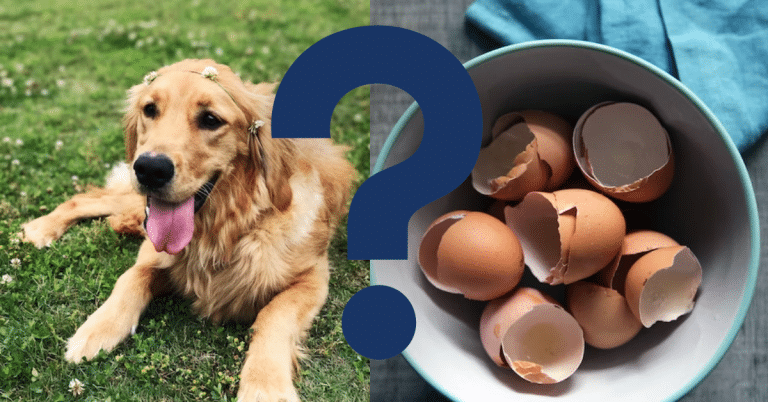Can Dogs Eat Couscous? A Vet’s Opinion

Couscous is a granular pasta prepared from semolina wheat, popular in North African and Mediterranean cuisines. But can you feed Couscous to your dog?
In moderation, dogs can consume Couscous. It is a grain that is safe for most dogs and contains carbs and some minerals. However, make sure that it is simple and cooked without any extra spices or components that are toxic to dogs, such as onions or garlic. Introduce it slowly to avoid any digestive difficulties or allergies. As with any new food, it is best to see a veterinarian to ensure it is compatible with your dog’s nutritional demands and health issues. Moderation and correct preparation are essential for couscous ingestion in dogs.
Benefits of Couscous for dogs
Couscous can be beneficial to dogs if served in moderation and properly prepared. However, it is crucial to remember that it should not be used in place of a balanced canine diet and should only be given as a treat on occasion.
- Nutritional Value: Couscous is high in carbs, which provides energy to dogs. It also contains protein and fiber, aiding digestion and maintaining a healthy gut.
- Gluten-Free Alternative: Some dogs may be sensitive to or allergic to gluten, which is found in wheat-based goods. Couscous produced from gluten-free grains, such as brown rice or quinoa, can be used in place of such dogs.
- Easy To Digest: It’s a light and easily digestible grain ideal for dogs with sensitive stomachs or digestive difficulties. However, always begin with minimal amounts to confirm compatibility with your dog’s system.
- Dietary Diversity: Introducing Couscous regularly can bring diversity to a dog’s diet, making meals more intriguing. A nutritious meal can be made by combining it with ordinary dog food or adding dog-friendly vegetables.
- Minerals And Vitamins: While not a nutritious powerhouse, Couscous does contain minerals such as magnesium and selenium, as well as vitamins from the grains used in its production. These things help dogs’ overall health and well-being.
Despite these advantages, vigilance is advised. Before making any changes to your dog’s food, consult your veterinarian. They may offer advice customized to your dog’s unique needs, ensuring that Couscous fits their dietary guidelines and poses no health hazards.

How to safely give Couscous to dogs
To ensure your dog’s safety and health, adding Couscous to their diet takes careful planning and monitoring:
- Plain Preparation: Cook plain Couscous without salt, spices, butter, or oil modifications. Onions and garlic are poisonous to dogs, so avoid using them.
- Begin Small: Start with a teaspoon of cooked Couscous into your dog’s usual meal. Keep an eye out for any side effects, such as stomach distress, vomiting, or changes in bowel motions.
- Serving Control: If your dog likes Couscous, gradually increase the serving size, but always in moderation. Because of the carbohydrate content, too much can upset their stomach or contribute to weight gain.
- Use Couscous As A Treat Or Meal Topper: Serve Couscous as a treat or mix it with their usual dog food. Including some dog-friendly vegetables or lean protein can boost the nutritional value and flavor.
- Keep An Eye Out For Allergic Reactions In Dogs: Keep an eye out for symptoms of an allergic reaction, such as itching, redness, swelling, or gastrointestinal problems. If these symptoms arise, stop eating Couscous immediately and consult a veterinarian.
- Consult Your Vet: Consult your veterinarian before introducing new meals, especially if your dog has dietary limitations, health concerns, or is on specialized medications. They can advise whether Couscous suits your dog’s dietary demands and health status.
- Balance And variety: Remember that Couscous should not be used in place of a well-balanced dog food. Providing a range of diets is critical to ensure your dog gets all the nutrients he needs for good health.
- Storage And Freshness: To keep Couscous fresh, keep it in a tightly sealed container. Avoid storing it for long periods as it may deteriorate.
You can safely integrate Couscous into your dog’s diet as an occasional supplement or treat if you follow these guidelines and are conscious of their specific needs and sensitivities. Always prioritize their health and seek professional advice when in doubt.
Will Couscous make a dog sick?
Couscous is generally safe for dogs when properly prepared and given in moderation. However, there are several risks if it is not adequately prepared or introduced:
- Seasonings & Additives: Avoid serving Couscous with seasonings such as salt, spices, butter, or oils. Onions and garlic are poisonous to dogs and should never be included in their diet.
- Portion Control: Feeding a dog too much new food, particularly Couscous, will upset his stomach. Introduce it slowly and in small doses to see how your dog reacts.
- Allergies Or Sensitivities: Dogs, like humans, can have food allergies or sensitivities. Keep an eye out for symptoms of allergic reactions such as itching, redness, swelling, or gastrointestinal problems. If these symptoms appear, stop eating Couscous and consult a veterinarian.
- Digestive upset can occur when a dog’s food is abruptly changed. Couscous may disagree with your dog’s system if they have vomiting, diarrhea, or other digestive disorders after eating it.
- Methods Of Preparation: Ensure the Couscous is cooked correctly and served plain. Raw or undercooked grains may be difficult to digest for a dog and cause pain.
To reduce the possibility of your dog becoming ill with Couscous, introduce it gradually, monitor for bad reactions, offer it plain without any dangerous additions, and keep an eye on portion quantities. Before introducing Couscous to your dog’s diet, as with any new food, check with your veterinarian, especially if your dog has dietary limitations, health difficulties, or specialized dietary demands.
Can Dogs Eat Couscous Variations?
Certain types of Couscous are acceptable for dogs to consume if made without dangerous substances and in moderation. Consider the following variations:
- Couscous, Whole Grain, Or Gluten-Free: If your dog is sensitive to wheat, choose whole grain or gluten-free versions. Please ensure they’re plain, with no extra spices, salt, or condiments.
- Plain Cooked Couscous: Use plain cooked Couscous with no additives. Variations with extra herbs, spices, oils, or flavorings should be avoided because they can be hazardous or irritating to a dog’s digestive tract.
- Couscous With Veggies: Some varieties may include dog-friendly veggies such as essential carrots or peas. Check that these vegetables are suitable for your dog and do not include any dangerous elements.
Introduce new variations gradually and in small doses to see how your dog reacts. Keep an eye out for symptoms of allergies, stomach discomfort, or other harmful effects. When giving Couscous to dogs, remember that moderation is crucial. Before introducing new variations, consult your veterinarian for specialized recommendations based on your dog’s dietary demands and health problems.

Vet’s Summary
The article emphasizes correct preparation and moderation while feeding Couscous to dogs. It emphasizes the importance of serving plain, cooked Couscous without harmful additives or spices. It also recommends gradually introducing this grain into a dog’s diet while watching for allergic reactions or digestive concerns. While Couscous can provide carbohydrates and specific nutrients to dogs, it should not be used to replace a balanced meal. It should only be given as an occasional treatment under veterinary supervision.
Given dogs’ possible digestive benefits, probiotic supplements could help them maintain good gut health. Probiotics can help maintain a healthy gut flora balance, potentially alleviating digestive discomfort or assisting in recovery after dietary changes. However, before beginning any supplements, contacting a veterinarian is critical. They can advise you on the best probiotic strains and doses for your dog’s needs, ensuring the supplements are safe and valuable to your pet’s digestive tract.
Videos to watch
If you are wondering what related foods are good to give your dog, watch this:
And if you want to know what a dog can NOT eat, watch this:






